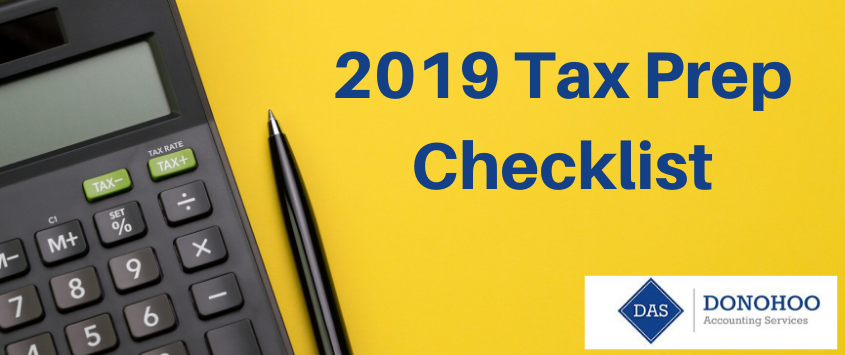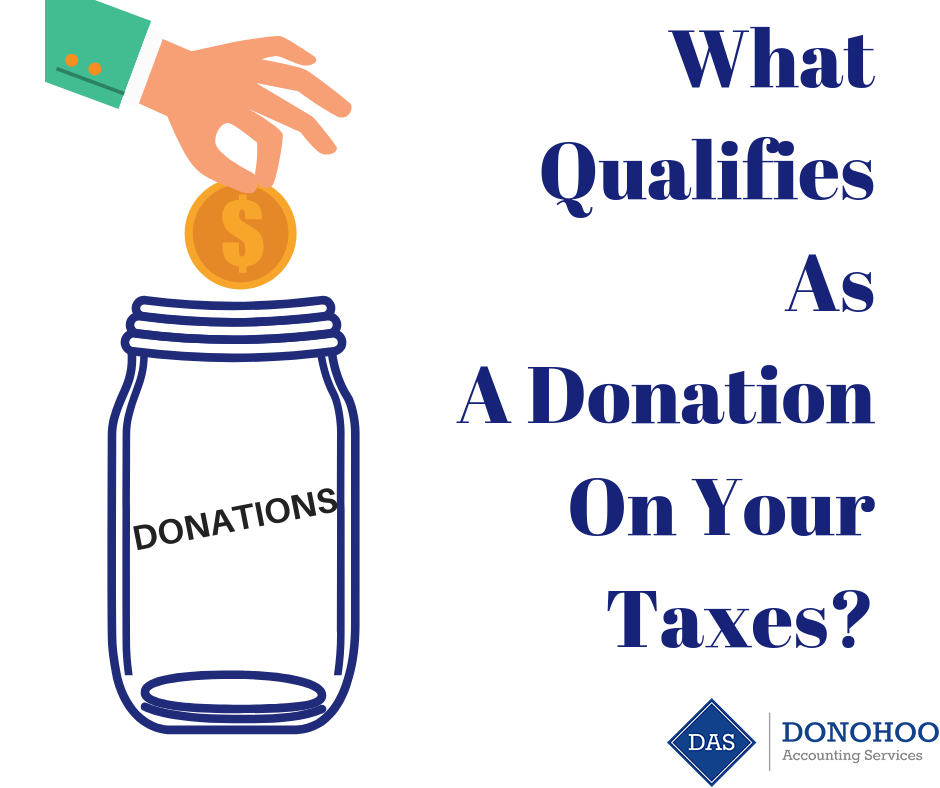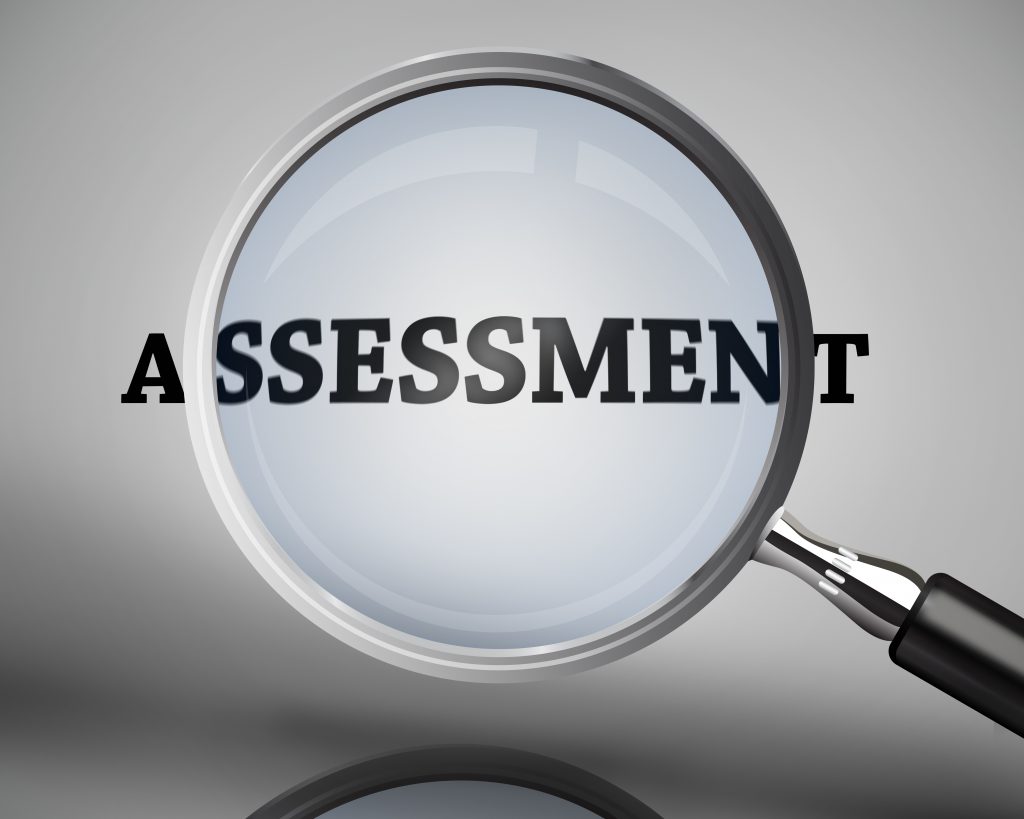Personal Tax Prep Checklist
Getting ready to file your 2019 personal income taxes can be a daunting task of collecting information. But don’t worry, the pros at Donohoo Accounting Services are here to help! The information required to file your income taxes neatly falls into four categories: Your personal information, dependents’ information, income sources and deductions.
Your Personal Information
While most people may have this information ready-at-hand for other purposes, others may have to locate it. Either way, you will need it to file your federal, state and local income taxes. Be sure to have your Social Security number or tax ID number, as well as the full name and Social Security number or tax ID number for your spouse if you are married. If you have this information in written or printed form, be sure to shred the document after your tax preparation for security purposes. Professional accountants take very good care to do this.
Dependent Information
You will need the full names of your children or dependents along with their Social Security numbers or tax ID numbers. Having either their Social Security cards or their names and numbers in written or printed form may make filing easier for your tax preparer. However, as mentioned above, be sure to shred the document after your tax preparation for security purposes.
Income Sources
This is where collecting income tax information starts to get tricky, but you can do this!
W-2 Forms
If you and your spouse work a regular full-time or part-time job, your employer will issue a W-2 Form that shows your earnings and tax deductions for the year. Some employers mail W-2 Forms to their employees while others provide access to an electronic document online that you can download and print. Either way, secure a paper copy of your W-2 Forms for yourself and for your spouse.
1099 Forms
Companies issue this form to contracted workers who earn more than $600 within one tax year. Additionally, you may receive a 1099 Form if you received income from non-work sources such as investments, rental income, prior years’ state and local income tax refunds, lottery or gambling winnings, unemployment compensation or retirement benefits. In addition to the 1099 Form, you may be required to provide additional documentation for income earned outside of your primary job. Your tax professional can provide details.
Deductions
Although this area of tax filing seems complicated to most people, taking deductions can reduce your tax liability and may increase the likelihood of your getting an income tax refund. More than a dozen kinds of income tax deductions can be taken, but the most popular deductions are for qualified charitable contributions, home mortgage interest, educational expenses and medical expenses. While you may receive year-end statements from the institutions that received your contributions or payments, consult with your tax professional for details about the kinds of records you need to provide when claiming deductions.
To help you find the most deductions and keep your personal information secure, contact Donohoo Accounting Services at 513-528-3982 for a free consultation. We have served and earned the trust of individuals and small businesses throughout the Greater Cincinnati area for more than 20 years.
Check us out on Facebook, Twitter or LinkedIn for our latest updates!
















